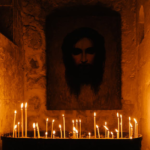What is ‘The Last Kingdom’ About? Exploring the Epic Tale of Power Loyalty and Betrayal
What is ‘The Last Kingdom’ About? Exploring the Epic Tale of Power, Loyalty, and Betrayal
‘The Last Kingdom’ is a historical drama television series based on Bernard Cornwell’s bestselling novel series, ‘The Saxon Stories.’ Set in the late 9th century, it follows the protagonist Uhtred of Bebbanburg as he navigates the tumultuous time of Viking invasions in England.
The Storyline
The series revolves around the character Uhtred, a young Saxon nobleman who is captured and raised by Danish Vikings after his father’s death. As Uhtred grows up, he finds himself torn between his English heritage and the adopted Viking culture. This internal struggle sets the stage for a captivating tale of power, loyalty, and betrayal.
With the Viking invasion threatening to take over England, Uhtred finds himself caught in the crossfire between the warring factions of the Danes and the Saxons. Throughout the series, Uhtred’s loyalty is tested as he must navigate shifting alliances and the constant threat of betrayal.
The Characters
One of the main strengths of ‘The Last Kingdom’ lies in its well-developed characters. Uhtred, brilliantly portrayed by Alexander Dreymon, is a complex and morally ambiguous protagonist. His journey from a young boy seeking revenge to a seasoned warrior torn between his loyalties is both compelling and relatable.
Other notable characters include Alfred the Great, the King of Wessex, whose strategic mind and desire to unite England become instrumental in Uhtred’s quest. Brida, Uhtred’s childhood friend-turned-foe, adds another layer of complexity to the story, showcasing how loyalty can be tested and friendships can be shattered in times of war.
The Historical Context
‘The Last Kingdom’ is set during a crucial period in English history known as the Viking Age. The Vikings, led by fearsome warriors such as Ragnar Lothbrok and Ivar the Boneless, launched a series of raids and invasions on England during the 9th century. These events shaped the fate of the nation and laid the groundwork for the unification of England under future kings.
The series does an excellent job of immersing viewers in this tumultuous time, capturing both the brutal realities of war and the cultural clashes between the Vikings and the Saxons. The historical accuracy and attention to detail make ‘The Last Kingdom’ a must-watch for history enthusiasts and fans of epic storytelling alike.
The Themes
‘The Last Kingdom’ explores several themes that resonate with audiences today. Power, loyalty, and betrayal are at the forefront of the story, as characters grapple with their desires for control, the bonds they form with others, and the consequences of their actions.
Additionally, the series delves into the complexities of identity and belonging. Uhtred’s dual heritage and his struggle to reconcile his English roots with his Viking upbringing mirror the challenges many individuals face in a diverse and ever-changing world.
The Impact
‘The Last Kingdom’ has garnered a loyal fanbase and critical acclaim for its compelling storytelling, strong performances, and historical accuracy. Its ability to transport viewers to a distant time and make them emotionally invest in the characters’ fates is a testament to its quality.
Furthermore, the series has sparked a renewed interest in the Viking Age and Anglo-Saxon history among audiences worldwide. It has opened up discussions and inspired further research into this captivating period of English history.
In Conclusion
‘The Last Kingdom’ is a captivating and immersive television series that takes viewers on a thrilling journey through the Viking Age in England. With its rich characters, intricate plotlines, and exploration of universal themes, it has firmly established itself as a must-watch for history enthusiasts and fans of epic storytelling.
Whether you are drawn to the gripping tale of power, loyalty, and betrayal or are fascinated by the historical context of the Viking Age, ‘The Last Kingdom’ promises to provide an unforgettable viewing experience that will leave you eagerly awaiting the next chapter in Uhtred’s journey.
FAQs
1. What is “The Last Kingdom” about?
“The Last Kingdom” is a historical fiction television series that tells the epic tale of power, loyalty, and betrayal during the Viking Age in England.
2. When was “The Last Kingdom” first released?
“The Last Kingdom” first premiered on October 10, 2015.
3. Is “The Last Kingdom” based on a book series?
Yes, “The Last Kingdom” is based on the popular historical fiction book series called “The Saxon Stories” by Bernard Cornwell.
4. Who are the main characters in “The Last Kingdom”?
The main characters in “The Last Kingdom” include Uhtred of Bebbanburg, Alfred the Great, Brida, Aethelwold, and Aethelflaed.
5. Where is “The Last Kingdom” set?
“The Last Kingdom” is primarily set in what is now known as England during the 9th and 10th centuries, a time when Danish Viking invaders clashed with the Anglo-Saxon inhabitants of the land.
6. What themes are explored in “The Last Kingdom”?
“The Last Kingdom” explores themes such as identity, loyalty, honor, power struggles, religion, and the clash of cultures.
7. How many seasons and episodes are there in “The Last Kingdom”?
As of September 2021, “The Last Kingdom” has aired five seasons with a total of 36 episodes.
8. Who is the author of “The Last Kingdom” book series?
The author of “The Last Kingdom” book series is Bernard Cornwell, a prolific historical fiction writer.
9. Is “The Last Kingdom” historically accurate?
While “The Last Kingdom” is based on historical events and characters, some liberties have been taken for dramatic purposes. However, it does provide a glimpse into the historical context of the Viking Age in England.
10. Is “The Last Kingdom” suitable for all audiences?
“The Last Kingdom” is rated TV-MA due to its intense battle scenes, violence, and adult themes. It may not be suitable for younger viewers.




































